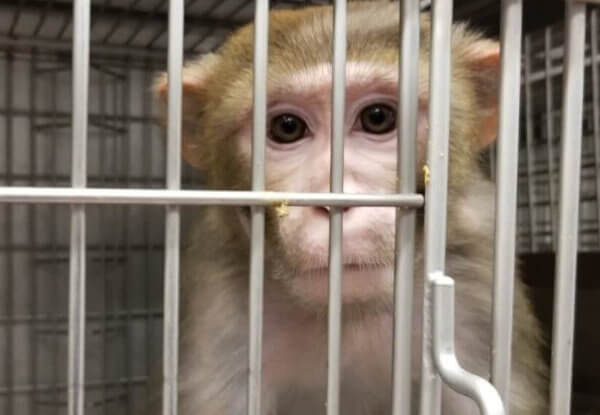Scientists Worldwide Work to Develop COVID-19 Vaccine Using Non-Animal Tests
With the world in the grip of a pandemic, scientists are working hard to develop much-needed treatments and vaccines for COVID-19, the disease caused by the novel coronavirus. Around the globe, there are a number of animal-free experiments already underway aimed at developing a vaccine or treatment for COVID-19. Given the scale and seriousness of this pandemic, researchers can’t afford to waste time conducting useless tests on animals.
Here are some more examples of innovative ways coronavirus researchers are avoiding cruel and archaic tests on animals in favor of cutting-edge, human-relevant methods:
- Three-dimensional reconstructed human respiratory tissue models, such as those from Epithelix Sàrl and MatTek Life Sciences, can be used to study COVID-19 infection and screen for potential treatments. A longtime supporter of the two companies, the PETA International Science Consortium Ltd. helped fund the development of a first-of-its-kind model of the lower respiratory tract, EpiAlveolar, available from MatTek Life Sciences. EpiAlveolar is a three-dimensional model composed of human cells from the lower respiratory tract. The cells can be exposed to the test material in the air on one side and can receive nourishment from a nutrient-rich liquid on the other—similar to the workings of a human lung.
- Scientists at Gauhati University in India used advanced computer simulation methods to work out which parts of the virus are best suited to triggering an immune response in humans. This work could contribute to the design of safe and effective vaccines against COVID-19.
- Researchers at the University of Bristol in England are growing the virus in cells to gain a better understanding of the way it spreads and causes sickness. Using this technique, they can find out whether it mutates under certain conditions. Unlike pointlessly infecting mice, this work provides crucial information.
- Following work by Chinese scientists to show that the antimalarial drug chloroquine was able to kill the virus in infected cells, a series of small trials were set up in Chinese hospitals to test its effectiveness in treating human COVID-19 patients. The drug is thought to be safe and effective. A clinical trial is now underway at the University of Oxford in England to test chloroquine in 10,000 human patients.
- Researchers at Oak Ridge National Laboratory in the U.S. are using Summit—the world’s smartest and most powerful supercomputer—to identify existing drugs that could be effective in treating COVID-19 in humans. Based on the physical properties of the virus and of each drug, the computer predicts how the two might interact. The effectiveness of promising drugs can then be measured by testing them on cells infected with the virus.
- In London, scientists are searching for 24 volunteers willing to be infected with other, similar coronavirus strains (that are not known to cause COVID-19) to help pharmaceutical companies safely test potential vaccines and antiviral drugs.
- A U.S. company is working to “develop biological 3-D models for all major organs and disease states.” PETA has long supported in vitro testing methods such as these, which use human cells. This way, tests that study the way a drug behaves in human tissue can be performed instead of pointless tests on animals that aren’t relevant to human health. The company states, “Given the rapid spread of COVID-19, we are quickly redeploying some of our internal resources to develop a lung model for research into potential COVID-19 treatments.”
The U.S. National Institutes of Health reports that 95 out of every 100 new drugs that pass animal tests fail in humans, because they are either unsafe or ineffective. Mice—who have to be genetically engineered just to be susceptible to the disease—show only mild symptoms of COVID-19. Dr Stanley Perlman, a coronavirologist at the University of Iowa, notes that infecting mice “doesn’t really tell you much about how the virus causes disease.”
In this time of great uncertainty and confusion, there’s one thing we do know for sure: Experimenting on animals is not only unethical but also unjustifiable from a scientific perspective.
What You Can Do
Experiments on animals are archaic and cruel. They waste resources, time, and lives. Join PETA and compassionate people around the world who want to see companies invest in real science that will help humans.









